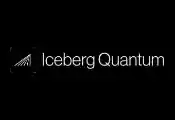SandboxAQ Publishes Scientific and Technical Milestones for Magnetic Anomaly-Based Navigation
Palo Alto, CA, December 17, 2024 -- SandboxAQ today announced a series of scientific and technical milestone publications on magnetic anomaly-based navigation (MagNav), collectively marking a set of significant advances in the company’s core research and product development activities for its AQNav offering. Building on its breakthrough results with the U.S. Air Force (USAF), including the successful use of AQNav for real-time navigation in GPS-denied environments and the award of a TACFI contract extension to develop new configurations for a wider range of USAF aircraft, these publications provide a synthesis of SandboxAQ’s expertise. Together, they represent critical contributions to the commercial aeronautical, defense, and academic research communities over the past three years.
SandboxAQ and its MagNav partners, including the USAF, Acubed (a subsidiary of Airbus) and Boeing, have been at the forefront of scientific and engineering advancements required to commercialize the underlying quantum sensing and AI technologies that enable accurate, real-time navigation without reliance on Global Positioning Systems (GPS). These include:
- More than 200 flight hours and more than 40 sorties across multiple regions on four different aircraft types, ranging in size from single-engine planes to large military transport aircraft.
- Successful flight tests in two USAF exercises – Exercise Golden Phoenix and Exercise Mobility Guardian in 2023
- Successful commercial flight tests on Airbus and Boeing aircraft
“Global Navigation Satellite Systems are increasingly vulnerable to denial, jamming and spoofing, creating critical challenges for accurate civilian, commercial and military navigation and positioning. The growing global scourge of GPS interference – particularly in contested geographies – underscores the critical need for accurate, alternative Positioning, Navigation, and Timing systems that can integrate with existing navigational systems yet operate independently of GNSS,” said SandboxAQ advisor Admiral John M. Richardson. “SandboxAQ’s AQNav takes a system-of-systems approach to secure, real-time positioning and navigation. Leveraging advanced Large Quantitative Models, powerful magnetometers, and Earth’s crustal magnetic field, AQNav delivers robust, redundant and reliable navigation capabilities – day or night, in all weather conditions, across a broad range of aircraft.”
“Our team has been setting the pace in advancing magnetic anomaly-based navigation, from establishing statistical rigor around performance and map quality to shaping requirements for magnetic maps, said Luca Ferrara, SandboxAQ’s General Manager of Navigation. “We've also pioneered AI-driven techniques using Liquid Neural Networks for signal processing and space weather compensation, and demonstrated the generalizability of our models across aircraft types in operational settings with the USAF. These achievements highlight the strength of our AQNav engineering team and push the boundaries of what’s possible in magnetic navigation.”
Magnetic Navigation: Using state estimation theory and geophysical science to define magnetic navigation performance boundaries
SandboxAQ has made significant contributions to the scientific understanding and practical application of magnetic navigation technology through a series of recent publications. The July 2024 keynote address from Regupathi Angappan at the Breakthrough Discuss 2024 conference ("Understanding & Navigating The Magnetic World with AQ") provided a broad overview of the technology and its potential benefits. This was followed by two research papers presented at prestigious conferences.
The paper by Aditya Gupta et al. ("Lower Bounds on Magnetic Navigation Performance as a Function of Magnetic Anomaly Map Quality"), presented at the October 2024 Digital Avionics Systems Conference, established a theoretical framework for assessing the impact of magnetic map quality on navigation performance. This work, which received a Best in Session Award, offers valuable insights for developing and optimizing magnetic navigation systems.
Additionally, the research by Jackson Bell et al. ("Determining Geophysical Map Requirements for Magnetic Navigation using Cramér Rao Lower Bound Analysis"), presented at the December 2024 American Geophysical Union conference, explored the specific requirements for geophysical maps needed for accurate magnetic navigation. This work helps define the data collection and processing strategies necessary for successful implementation of the technology.
Overall, these publications demonstrate SandboxAQ's commitment to advancing the field of magnetic navigation and contributing to a robust scientific foundation for this innovative technology.
AI for Signal Processing: Incorporating various noise sources to design generalizing, physics-informed signal processing approaches specialized for magnetic navigation.
SandboxAQ research has focused on developing robust and reliable navigation systems that can operate in challenging environments, such as those with significant magnetic or intentional GPS interference.
One significant contribution is the development of platform-agnostic denoising models for MagNav systems, as detailed in a paper presented at the June 2024 ION Joint Navigation Conference by Kimberly Moore et al. ("Multi-Aircraft Generalizability of Platform Denoising Models for Magnetic Navigation"). These models leverage advanced machine learning techniques to effectively remove noise and interference from magnetic sensor data, enabling accurate and precise navigation.
Additionally, SandboxAQ pioneered the use of physics-informed machine learning techniques to calibrate aeromagnetic compensation, as described in a NeurIPS 2023 Workshops paper by Favour Nerrise et al. (“Physics-Informed Calibration of Aeromagnetic Compensation in Magnetic Navigation Systems using Liquid Time-Constant Networks”). By incorporating physical principles into the learning process, SandboxAQ has achieved more accurate and reliable calibration, leading to improved navigation performance.
Their most recent research, presented at the December 2024 American Geophysical Union AGU24 meeting, explores the use of AI to mitigate the impact of magnetospheric-ionospheric signals on magnetic navigation (Regupathi Angappan et al.). By leveraging the power of AI, SandboxAQ has developed innovative techniques to identify and correct for these disturbances, ensuring robust and reliable navigation even in the presence of extreme magnetic conditions. These advancements have the potential to revolutionize a wide range of applications, from autonomous vehicles to underwater exploration.




































